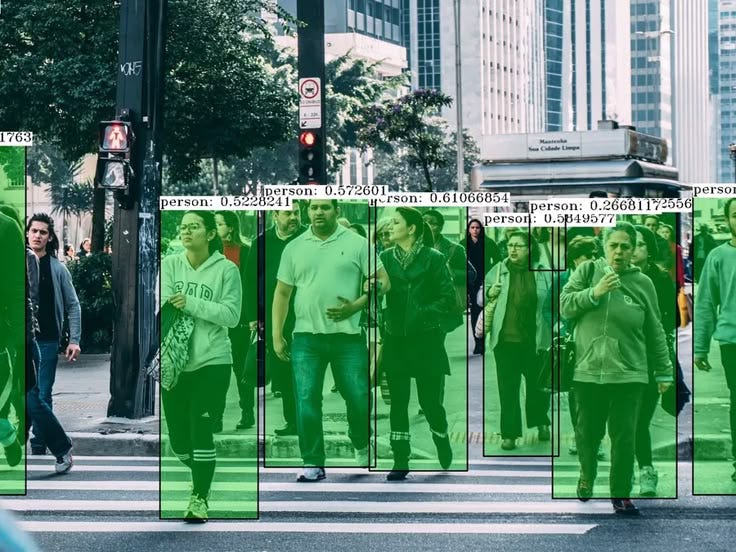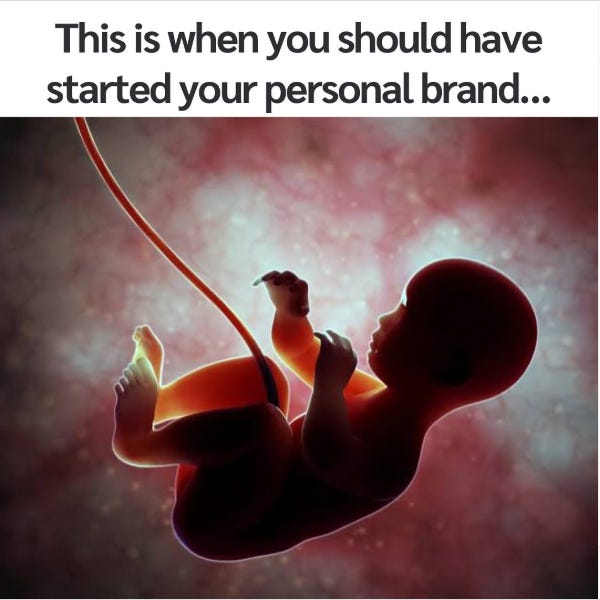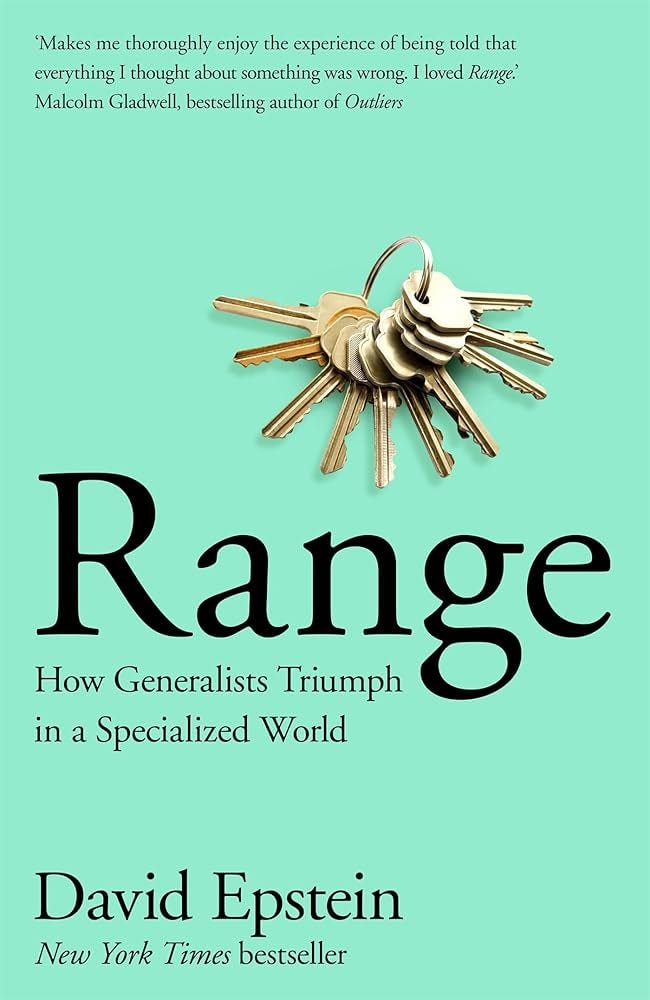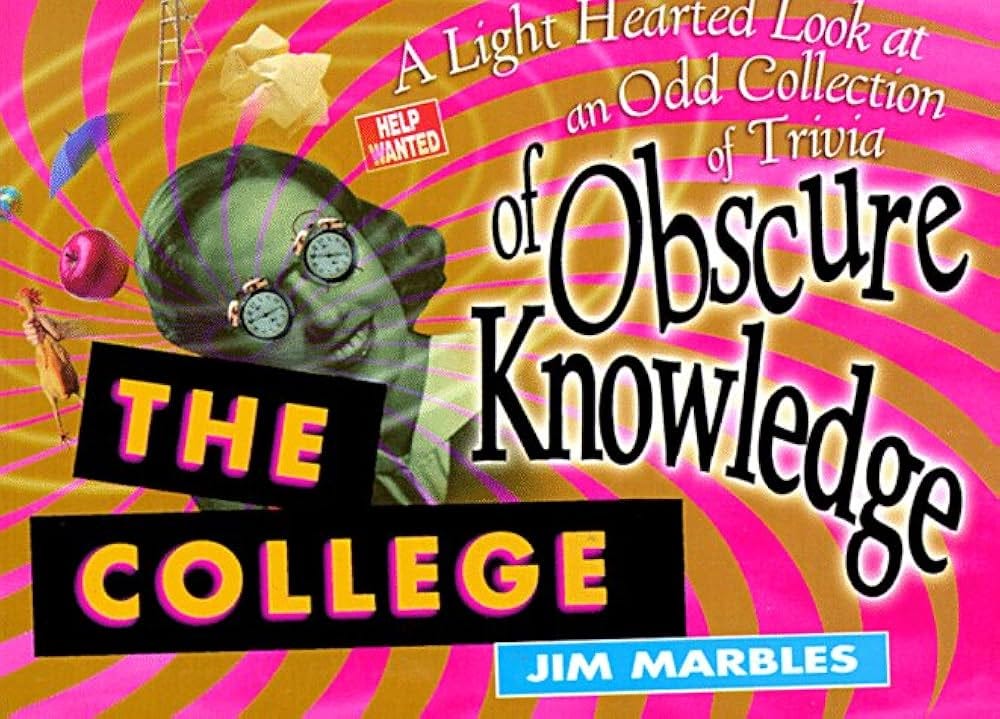Will the rise of generalists put a premium on fringe knowledge?
Pub quiz lovers, trivia merchants, Guinness World Book of Records record chasers and random fact enthusiasts could be due for a serious clout boost soon.
So this note gave me the idea for this piece…
The hyper-specialised artisan of old worked within a narrow silo—harder to break into, but easier to sustain. Today’s YouTube artisan faces the opposite problem: even if their niche is just as specific, the platform forces them to become a generalist. They don’t just master a craft; they must also sell, market, and engineer virality. Most can’t rely on YouTube alone—not because their expertise is lacking, but because the job demands skills far beyond the craft itself. Specialisation survives, but only when wrapped in generalist platform skills.
In today’s world, regardless of background or skillset (particularly in the creative industries), you’re no longer judged just on professional capacity—you’re also judged on social capital, built through personal branding. This additional pillar extends beyond simply doing your job; you must sell how you do your job or the lifestyle that enables your specific approach. Part of the clamour for personal branding is selling the process behind whatever you do.
People have become obsessed with the "how" rather than the "why." A sub-strand of digital fatigue is digital stasis—a paralysis where masses of information drown the ability to act. We’ve trapped ourselves in understanding "how" without developing the tools for an applied "why." Personal branding thrives on the ‘how’—the process, the hustle, the aesthetic—because it’s tangible, replicable, and algorithm-friendly. But this focus has a cost: a glut of ‘how’ content floods audiences with steps they’ll never take, while the ‘why’—the deeper purpose—gets buried, even though it’s the only thing that can sustain long-term momentum.
The idea of personal branding is contentious. Through one lens, it’s late capitalism’s vampiric attempt to commodify personal lives. Through another, it’s career leverage—a way to increase income and autonomy. Both perspectives hold truth.
Alongside personal branding, the flattening of skillsets has been critical in shaping modern work. When anyone can learn almost anything, the concepts of expertise and specialism blur (outside professions like medicine or aviation). The rise of the self-taught creator-entrepreneur—the generalist final boss—is one of the defining outcomes of the modern internet. Its self-teaching capabilities have made it a conduit for global socioeconomic mobility.
David Epstein, author of Range: How Generalists Triumph in a Specialised World, argues that generalists excel in "wicked environments"—domains where rules are unclear, patterns unreliable, and feedback delayed or misleading. Sound familiar? Ding ding! You’re in it. The modern world is the ultimate wicked domain. But in the six years since Epstein’s book, the rise of AI has recontextualised generalism again.
Thanks to AI, general knowledge, or at least access to it, has hit an inflexion point of scale. With this new baseline of knowledge and the ability to access the same context as everybody else, the question becomes less about facts (Copernicus is the father of modern astronomy) and more about what might be true—things yet to be proven and very obscure facts, or recent developments. Enter: fringe knowledge.
Fringe knowledge refers to ideas, theories, or beliefs considered unconventional, speculative, or outside mainstream understanding. Your mind might leap to climate deniers or 5G truthers, but here, we’re focusing not on conspiracy theorists but purveyors of random obscurities—the stuff of pub quizzes and "did you know?" tangents. This knowledge exists at the fringes of usefulness, the sort you don’t realise you need until a situation demands it. In a world where everyone has access to the same information at the same speed, what stands out? The ideas that can’t be corroborated by common parlance. The stubbornly human, the unoptimisable.
Guinness World Records reportedly receives around 50,000 applications annually. As we dive deeper into an AI-powered reality, expect that number to soar. The Records might evolve into something more profound than a tome of oddities: they might become a mirror for the world’s psyche. These pursuits—running the length of Africa, memorising pi to 100,000 digits—aren’t just stunts; they’re reminders of our core humanity. We’re navigating a landscape built on the most advanced knowledge in history, so we return to what we know best: exploring the fringes of impossibility and dragging new possibilities back from the margins. Not theoretically, but ontologically.
People are exhausted by Silicon Valley’s thought experiments, which inevitably morph into paradigm-shifting platforms we’re all forced to engage with. Enter figures like Russ Cook, who in 2024 ran the length of Africa—his second World Record after running a marathon while harnessed to a car in 2021. In 15 years, the minutiae of his feats will be trivia staples.
In film, there’s been a resurgence of the "hangout movie"—a sub-genre Quentin Tarantino coined to describe films where characters and dialogue trump plot. Why? Because cinema, as a mass medium, has lost meaning under the fragmentation of streaming. But the hangout movie's resurgence stems from the same place where people form or pursue fringe ideas and interests: from simply hanging out with friends, talking about nothing, and discovering that nothing might spark something down the line. A bit like one day getting up and deciding to run the length of Africa - it’s the stuff of chatting shit-with-mates dreams.

The practice of people just hanging out is a bedrock of human existence. Cavemen weren't trying to be Jackson Pollock; they were chucking about some rocks on a wall. They weren't attempting to conjure art. The modern digital age has stultified the practice of just hanging out—to our detriment. Time is mapped to productivity, and productivity (imagined or real) is then expressed online. Then the social capital meter fluctuates accordingly. But the more we hang out, the more fringe knowledge we access. And more curiously we can navigate an increasingly stratified world.
As generality becomes the norm, the truly valuable will be found on the fringes—the peculiar, specific, idiosyncratic knowledge that resists categorisation.
So chat more shit. Do more ‘just because’ things. Not as a respite from the grind, but as a way to rediscover the unoptimised edges where creativity will always live. That’s the proof we were here all along. And you might just change your life - or career - while you do it.
You are now locked into a RADIO KNIFE transmission. Thanks for listening.
Written by Damola Oladapo, founder of House Captain and freelance strategist and copywriter. My expertise has seen him lead global strategy briefs for Nike, craft new brand platforms for Diageo, define fresh audience segments for Brooks Running, write multi-market OOH campaigns for EA SPORTS FIFA, and much more.
RADIO KNIFE slices through the noise of culture, commerce, and everything in between—delivering sharp insights shaped by global trends, consumer behaviour, and simple curiosity about why things are the way they are.
ALWAYS ARRIVE UNPREPARED.














Really valid insights on the forced generalism of personal branding. The section on fringe knowledge, I read that as a kind of defence of eccentricity in an age obsessed with optimisation. But I found myself wondering, when we talk about a premium on fringe knowledge, what kind of value are we actually talking about?
What I’d love to see explored further is the difference between knowing lots of random things and knowing lots about something random. So not about being a generalist in the hodgepodge sense, but more about being able to synthesise across unlikely domains. That unexpected depth, when brought into new contexts, is where real value can be unlocked imo. A futurist from Deloitte did a fascinating talk about that at this year’s SXSW. Big recommend: https://youtu.be/3r1__jrmVgo?si=C8AZDE1F7X_QtBqr